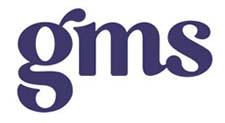Most people in our modern-day society like to drink alcohol from time to time. Many of us enjoy a glass of wine, a cold beer or even one of the harder drinks (pink umbrellas optional) when we are winding down after a long day.
But how does alcohol consumption affect a life insurance application? Please read on to find out!

When is Alcohol Consumption Considered a Problem?
All life insurance companies ask about alcohol consumption when it comes to medically underwritten plans (note that there are also guaranteed issue plans that have much smaller coverage amounts).
Most of the time an application’s medical questionnaire asks about weekly consumption habits as opposed to daily consumption habits.
People that have substantially less than 2 drinks a day on average are fine. While maximums differ from insurance company to insurance company, generally speaking, we can say that an average of 2 drinks per day is starting to push things.
People that have more than 2 drinks a day will probably be red-flagged and may receive additional scrutiny via more exhaustive testing (see next section below).
To put it in layman’s terms: if you have the occasional drink during the weekdays and like to get a little tipsy on the weekend then you should be fine.
In addition, the following are indicators to the insurance carrier that there is an alcohol problem:
- DUI on your driving record (driving under the influence of excessive alcohol consumption).
- Enrolment into an alcohol substance abuse program. The date when treatment was received is weighted according to how long ago treatment was undertaken as well as successful completion of that program. For example, getting into a treatment program 20 years ago is not the same as receiving treatment for alcohol abuse a year or two ago.
- Admission to any doctor that you have a problem with alcohol (this forms part of your medical records).
As an important aside, please be truthful on your application. If you intentionally misrepresent the amount of alcohol you consume this may be grounds for voiding your policy at time of claim.
Testing for Alcohol
Medically underwritten life insurance plans always involve answering medical questions.
Dependent on your age and the amount of life insurance you are asking for, a visit from a medical practitioner to your home may also be required. If this is the case you may have to provide urine and/or blood samples for testing (once again, this depends on your particular situation).
Alcohol consumption can be detected as follows:
- Alcohol levels in your urine, which are detectable up to approximately 12 to 24 hours after consumption (depending on how much you drank).
- Certain enzymes, acetaldehyde, and acetate result from alcohol metabolism. If the insurance company thinks you may have an alcohol problem then the likelihood that they look for these things greatly increases.
- Ethyl Glucuronide (EtG) is a metabolite that results from alcohol consumption, and its presence can be detected 3 to 4 days after drinking alcohol.
- A CDT (carbohydrate-deficient transferring) test may be done if there are signs that you have liver abnormalities (excessive drinking leads to liver problems such as cirrhosis of the liver). For a CDT positive test result a person typically must have more than 6 drinks per day on average for an extended period of time. Note that CDT levels should return to normal levels following 2 to 4 weeks of abstinence.
Drinking Factors That Affect Underwriting
(Note: “underwriting” is the process whereby an insurance company investigates an applicant’s health, medical history and overall life style to determine the applicant’s eligibility and premium rates).
The following are all factors that underwriters look at when processing a life insurance application for a plan that is not guaranteed issue:
- The current age of the applicant
- Amount of alcohol declared in the application
- Medical history of alcohol abuse
- How long the applicant has either abstained from alcohol or has drunk in moderation.
- Any relapses if you have admitted to having a problem
- Are you a member of a self-help group such as Alcoholics Anonymous (if an admitted alcoholic)?
- Whether or not you have received any treatment (e.g. a 28 day treatment program)
- The detection of co-morbid conditions (i.e. psychiatric conditions that are often found in conjunction with alcoholism)
- Any medical complications that have resulted from the abuse of alcohol
How to Fast Track Your Application
You can speed up your life insurance application by having all of the following ready at your fingertips:
- An APS (Attending Physician Statement)
- Full details concerning any medical treatment received for alcohol abuse
- Psychiatric and/or psychological reports that involve alcohol abuse
- Documentation concerning treatment programs (date and length of treatment are important)
- Any information that helps your cause such as continued employment (i.e. not fired for alcohol abuse) and attendance of self-help groups such as AA
Likely Underwriting Decisions
Here are the most likely underwriting decisions for applicants that have/had problems with alcohol:
- Best case scenario: if you are over the age 30 and have not had a drink for 5 years or more than you can expect to get standard life insurance rates.
- Typical cases: you qualify for a life insurance plan at 150% to 200% of standard rates. An example of a typical case is detection of liver or kidney problems from alcohol abuse where the symptoms are now controlled and further damage is being prevented by sustained abstinence.
- Worst case scenario: you are declined for life insurance. This category includes people with severe and recent health complications caused by alcohol abuse.
It is important to know that the underwriting decision may be deferred until you have a minimum of 2 years of sobriety under your belt (dependent on the insurance carrier).
Options if Declined
If you have been declined for a medically underwritten life insurance plan because of excessive alcohol consumption you still have the option of purchasing a guaranteed issue life insurance policy.
Note that these “no medical” life insurance plans are deferred, which means that the policy must be in force for a minimum of two years before paying out. If a person passes away before this two year period then all premiums are refunded to the beneficiary.
Conclusion
We hope you found this article about alcohol consumption and life insurance helpful.
If you have any questions please contact us free of charge (1-866-369-4474) or info@bakerandbakerbenefits.com as brokers it is our job to help you out.
If you think you have an alcohol problem and want to get help please talk to your doctor. You might also want to consider checking out a 12-step program such as Alcoholics Anonymous (to find meetings please click here).







